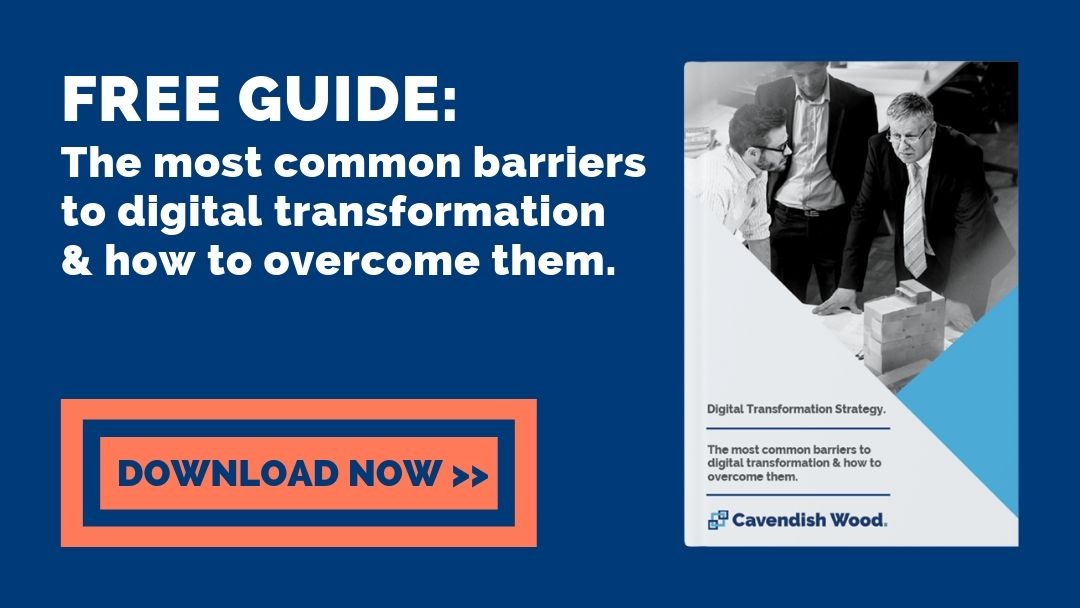
Digital transformation is the new norm but if you ask 10 people the question “What is digital transformation?” and you’ll likely get 10 different answers.
Across every industry, companies are making big investments into digital technology to ensure that they can compete in the digital age but how can a CIO ensure that the investment converts into tangible business benefits without truly being able to define what digital transformation is?
And how can the new breed of CIO, who is expected to drive business value, and not just manage IT, be sure that any technology investment is the right one?
There is a significant risk that a company will invest in new and cutting-edge technology because of media and sector hype, or a competitor move. And while that might be right for them, without understanding what digital transformation means to you and your company, this could prove a very costly mistake.
Most CIO’s are feeling a lot of pressure around going digital from the company executives or investors, but it is critical to understand the fundamental principles of digital transformation and what this looks like for your company before making any significant technology investments. Digital transformation certainly isn’t about implementing new technology.
Sure, technology plays a part but there is a deeper and more fundamental transformation which you as the CIO must drive and champion in your company in order to transform from legacy organisation to competitive digital threat.
So, what is digital transformation?
Ultimately, it’s a simple concept.
Digital transformation is about utilising new technology to offer your customers the best possible experience while they’re engaging with you. But put that objective to one side and consider what this actually means for your business.
The first thing to understand is that transformation is a journey, and there is no way of knowing where it’s going to end, so you’re going to need to put down the project plan and start thinking very differently!
What Digital Transformation is not
Undertaking a technology-led IT upgrade isn’t digital transformation. It may be cutting edge, and deliver some benefit in terms of customer engagement or enable a new, more digital service for your customers but what happens when it’s done?
You’ll more than likely be back to square one. Technology, and indeed your customers’ expectations don’t stand still while your 12-month project is designed, built, tested and released. And this is the key point about transformation.
The most critical aspect of any digital transformation is the culture of your business. That’s the way you do things, the things you believe in. It’s a very different approach, which makes it feel very risky but to become transformed it is the only game in town. Your business needs to be much more reactive to change itself.
It is to transform so that change and innovation are at your very core. This is going to take time, changing the whole way a company thinks and behaves is not a quick undertaking and most companies need to start small with pockets of innovation delivering iteratively, based on real user feedback.
What does a company capable of digital transformation look like?
Some companies are more digitally mature than others and are able to dive into the new world quicker than more traditional businesses.
A highly digitally mature company will deploy motived, cross-functional teams. Teams empowered to fail fast and make decisions from within.
These teams will be directly engaged with the business and customers they are delivering to. They will use Lean delivery methodologies and cycle through releases rapidly, but always coming back to continual testing and feedback.
Once a company can deliver change in this way, then it can move with the rapid pace of technological change, customer expectations, and the tide of competitor innovation.
Only then can a company claim to be digitally transformed.
This is digital transformation.

